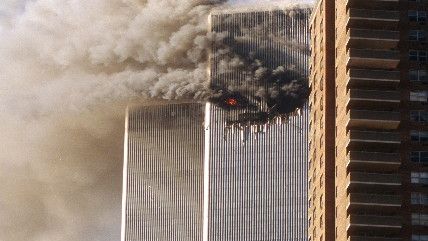Senate Votes to Allow 9/11 Families to Sue Saudi Arabia. Will the U.S. Be Sued Over Drone Strikes Next?
Stripping foreign officials of immunity from lawsuits works both ways.


By a unanimous voice vote yesterday, the Senate passed the Justice Against Sponsors of Terrorism Act (JASTA) which would remove the immunity enjoyed by foreign governments from lawsuits filed by the families of victims of terrorism on U.S. soil.
President Obama has promised to veto the bill — which will be taken up by the House at some point — though the overwhelming support in the Senate may indicate the president's veto could be overridden. The Saudi government has threatened to dump $750 billion in U.S. assets if the bill becomes law, and Saudi Foreign Minister Adel bin Ahmed Al-Jubeir said earlier this month that removing foreign immunities "would turn the world for international law into the law of the jungle."
There is something to be said for this. Laws that apply to international relations are generally recipricoal — think the Visa Waiver program which we've covered extensively at Reason — and if the Saudis can be sued over mid-level operatives in their government allegedly supporting the 9/11 hijackers, what's to stop the victims of errant U.S. drone strikes in Pakistan or Yemen or anywhere from suing officials in the U.S. government?
In a New York Times op-ed last month, law professors Curtis Bradley and Jack Goldsmith speculated that JASTA could even make the U.S. liable for the actions of other governments:
It is easy to imagine the United States being sued abroad as a result of the military and other foreign aid it gives to many nations. A great deal of behavior traceable to American financial and material support — for example, aid to Israel that is said to result in displacements or killings in the West Bank, or to United States-backed rebels who are accused of attacking civilians in Syria — might result in a lawsuit abroad for aiding and abetting terrorism.
The debate over JASTA comes at a time when U.S.-Saudi relations are further complicated by increasingly prominent calls for the highly classified "28 pages" of a joint congressional inquiry into 9/11, which many current and former congresspeople claim implicates a number of Saudi government officials, to be made public.


Show Comments (52)